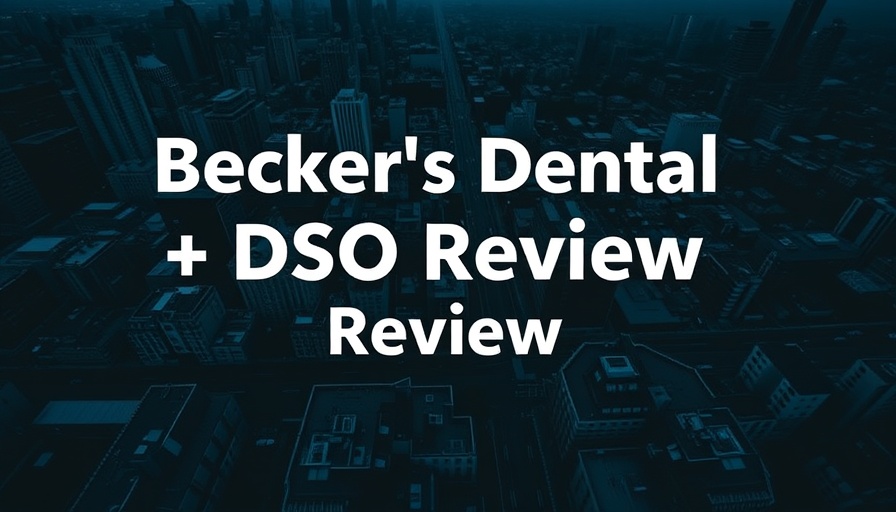
The Merger: A Significant Shift in Dental Examination Administration
The dental landscape is undergoing significant changes as the Clinical Dental Care Authority (CDCA-WREB-CITA) merges with the American Board of Dental Examiners (ADEX). The merger, which received official approval from governing bodies in August, marks a pivotal moment for dental licensure candidates in the United States. With this newly established entity, the combined organizations oversee a staggering 98% of dental licensure candidates and 85% of dental hygiene licensure candidates, streamlining processes that are crucial for the profession.
Enhancements in Exam Development and Delivery
The newly formed American Board of Dental Examiners aims to refine exam development and delivery methods, optimizing how candidates prepare for and take their licensing examinations. By consolidating resources and expertise, this merger promises to ensure that every aspect of the dental licensure process adheres to the highest standards, addressing the evolving needs of both dental professionals and patients alike.
A Broader Impact: The Future of Dental Licensure
Looking ahead, the merger could lead to considerable shifts in dental education and practice standards. As Dr. Emily Johnson, a dentist from suburban Pennsylvania, noted, the influence of governing bodies on licensure processes directly impacts practice growth and patient trust. By eliminating redundancy and enhancing collaboration among stakeholders, the ADEX aims to foster a more cohesive and efficient pathway for future dentists and hygienists entering the workforce.
Societal Connections: Why This Merger Matters
The implications of this merger extend beyond administrative streamlining. For dental professionals like Dr. Johnson, it represents a progressive shift towards a more integrative approach within the dental profession. The changes are likely to resonate throughout the healthcare sector as well, highlighting the importance of continuing education and stringent licensure standards.
Counterarguments: Concerns Around the Merger
However, there are voices of concern regarding the impact of such mergers. Critics argue that centralizing control may hinder local boards' ability to respond to specific needs within their communities. It is essential for the new ADEX to balance efficiency and standardization with the unique contexts of diverse dental practices across the country.
A Call for Adaptation: Next Steps for Dental Professionals
Dentists and dental hygiene professionals must proactively adapt to the changes brought about by this merger. Continuous professional development and staying updated on regulatory updates will be vital for successful practice under the new framework. This proactive approach not only benefits individual practitioners but also elevates the overall standards of dental care across the board.
Conclusion: Embracing a New Era in Dental Practice
The merger of CDCA-WREB-CITA and ADEX signifies more than just a structural change; it is a clarion call for dental professionals to embrace progressive reforms aimed at enhancing the quality and efficacy of dental education and licensure. As this new chapter begins, it’s crucial for practitioners to stay informed and actively engage in the ongoing developments in their field.
 Add Row
Add Row  Add
Add 




Write A Comment